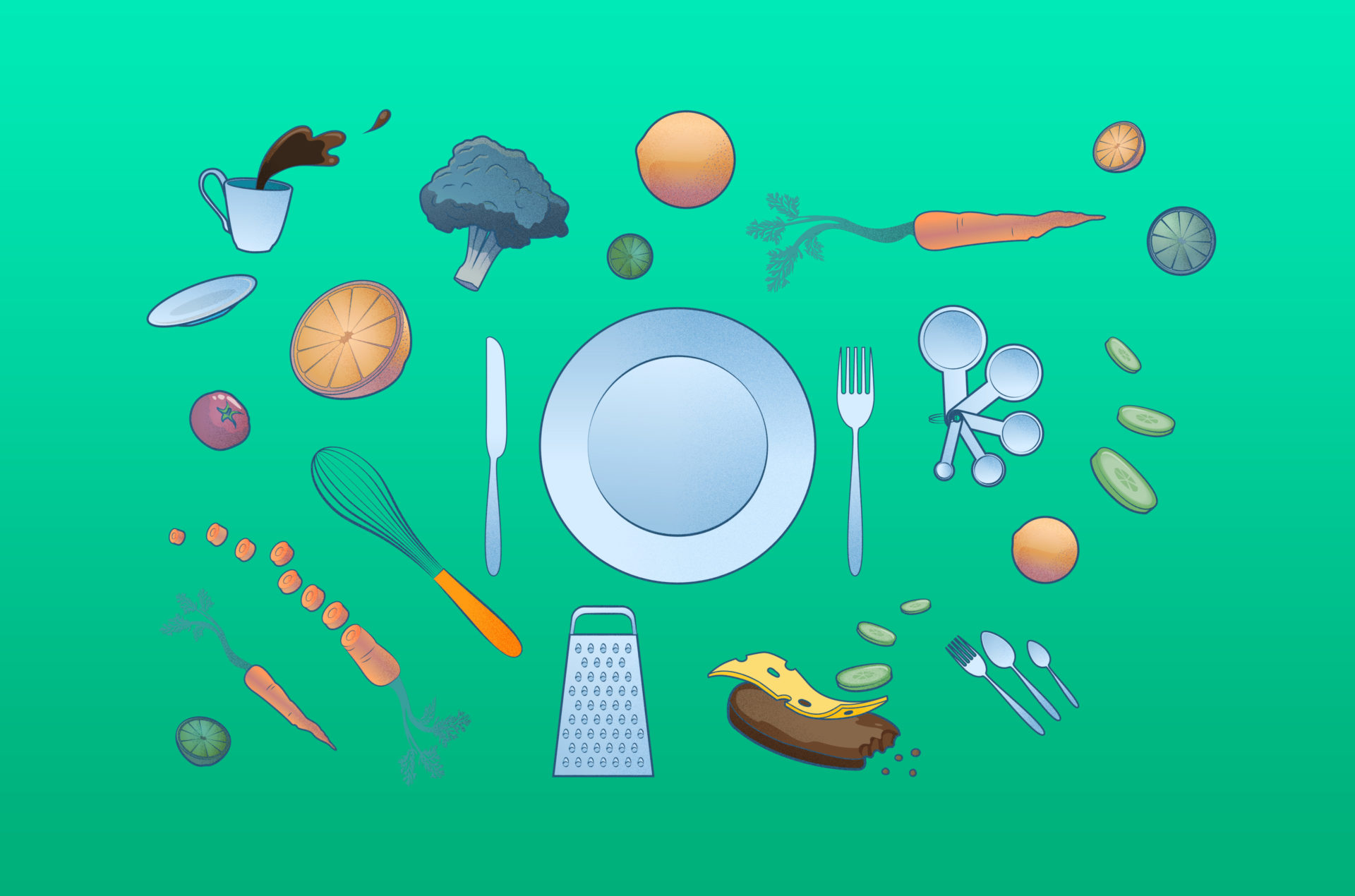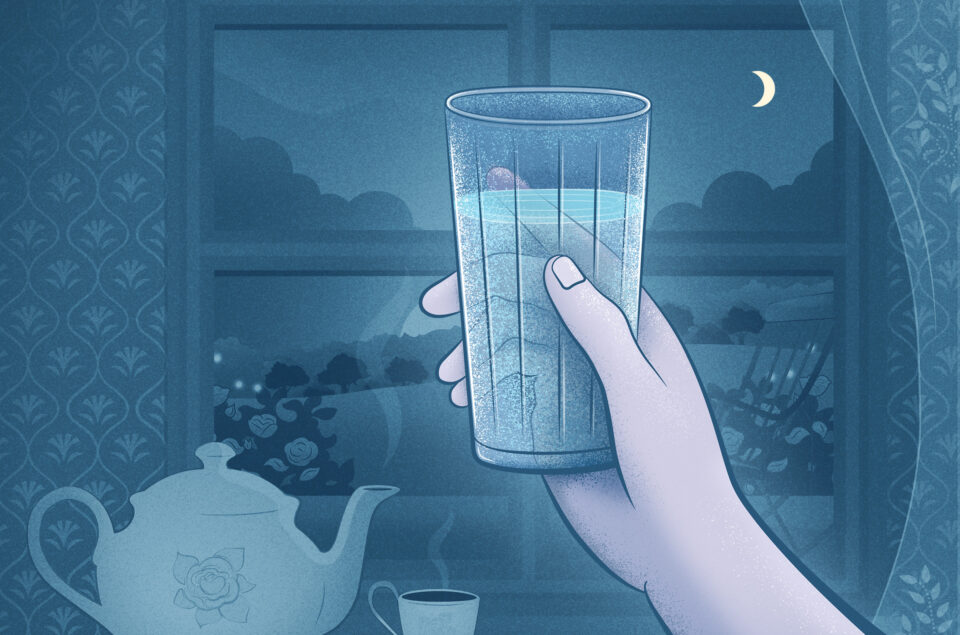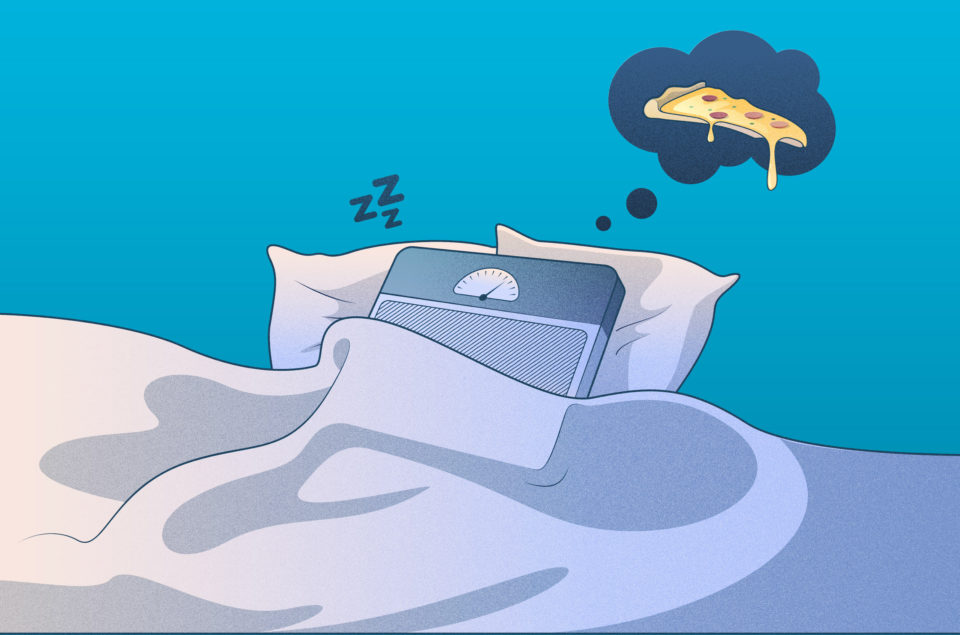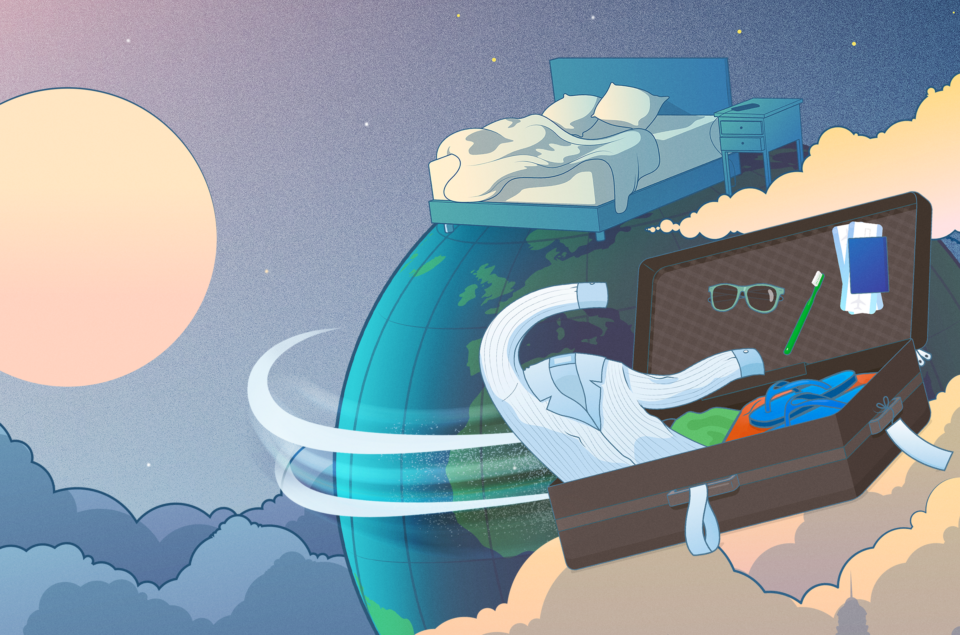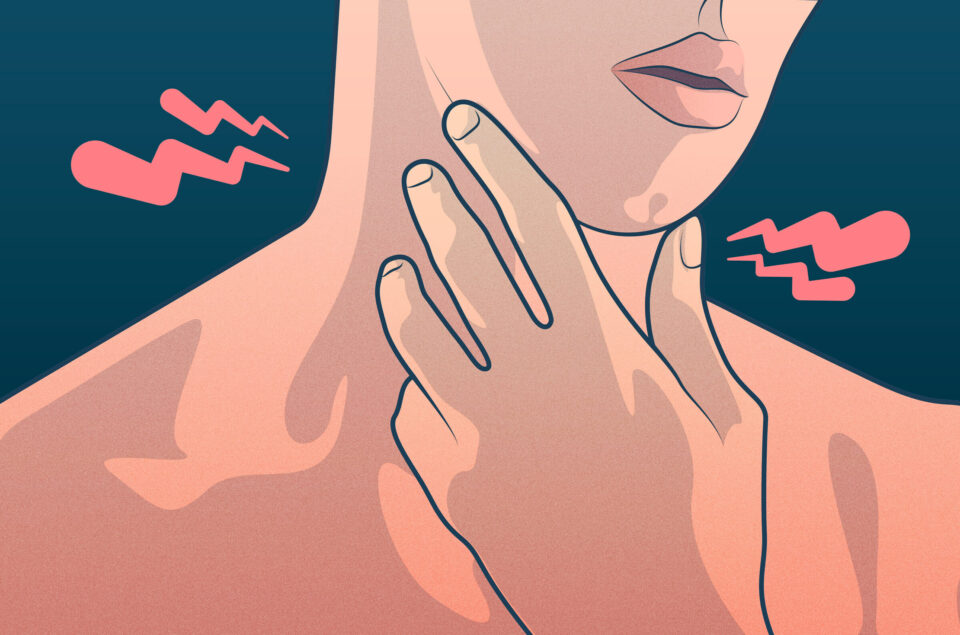Your diet has an impact on your quality of sleep. That’s in part because your body’s digestion slows down by up to 50% when you’re asleep. The food you eat also provides important cues for your internal body clock and the different nutritional compounds in food can either aid or discourage sleep. Based on sleep studies and research into eating habits, these three simple diet hacks could help you sleep better.
1. Try to eat earlier and at regular times – ideally over shorter periods
When it comes to sleep, when you eat may be as important as what you eat. Research by the Salk Institute, a leading American research institute in the field of life sciences, has shown that it’s very common for people to eat at irregular times and over long periods of time – often spending 15 hours or more eating each day. The subjects of the studies were often seen starting the day by drinking coffee shortly after waking up and finishing it with a snack late in the evening, or right before bed.
Irregular mealtimes and late-night nibbles tend to disrupt your internal body clock. Indeed, some of the body’s internal clockwork is as sensitive to nutrient cues as it is to light, according to the Salk Institute’s Emily Manoogian, PhD. In particular, eating late in the evening confuses the internal body clock by sending cues that it is an ‘active’ part of the day.
To improve sleep, try to avoid eating anything for at least two hours before bed. And, if you’re open to making even bigger lifestyle changes, research from the Salk Institute suggests reducing the time you spend consuming food during the day to 8-10 hours, eating at regular times, and consuming most of your calories during the first half of the day. Just like the saying goes: ‘Eat breakfast like a king, lunch like a prince, and dinner like a pauper.’
2. Skip the nightcap
Do you enjoy a nightcap before bed? Traditionally viewed as a sleep aid (a routinely quoted statistic is that up to one in five Americans drink in the evening to help them sleep), it is true that alcohol can help people fall asleep quicker. But any alcohol consumed late in the evening quickly wears off, resulting in fragmented sleep. Studies show that alcohol increases the production of adenosine, a naturally occurring substance, which signals to you that you are sleepy by blocking “wakefulness” receptors in your brain. But alcohol-induced adenosine wears off quickly and people who drink in the evening often wake up earlier, disrupting the restorative second phase of sleep.
Regular alcohol consumption before bed has also been shown to interfere with sleep regulation and can even cause insomnia. Alcohol may also aggravate some sleep conditions, including sleep apnea, and it increases the likelihood of sleepwalking, sleep talking and memory problems. A better time to have a drink is early evening or mid-evening – i.e. during the traditional ‘happy hour’ window.
3. Eat more complex carbs
The types of carbs you eat will tend to affect your quality of sleep. Foods that are high on the glycemic index – including quick carbs such as sugary drinks, white bread and rice – break down quicker in the gut, leading to spikes in energy, which may also affect sleep. People with diets high in sugar and fat have been shown to sleep less deeply and display greater levels of restlessness during the night. Because quick carbohydrates cause zigzagging blood-sugar levels, they also encourage people to eat later in the day. Sugary drinks and snacks such as sodas and chocolate can also be hidden sources of caffeine, which makes falling asleep even harder. What’s more, people who sleep badly at night, have been show to get the munchies the following day – possibly worsening a cycle of sleeplessness.
Meanwhile, in a huge study carried out with 77,860 older women, researchers found that consuming foods lower on the glycemic index – such as vegetables, nuts, whole grain bread and beans – was associated with a lower incidence of insomnia. The carbohydrates in these foods are absorbed more slowly and cause lower spikes in blood sugar levels.
Check how your diet affects your sleep quality. Try Sleep Cycle for free
